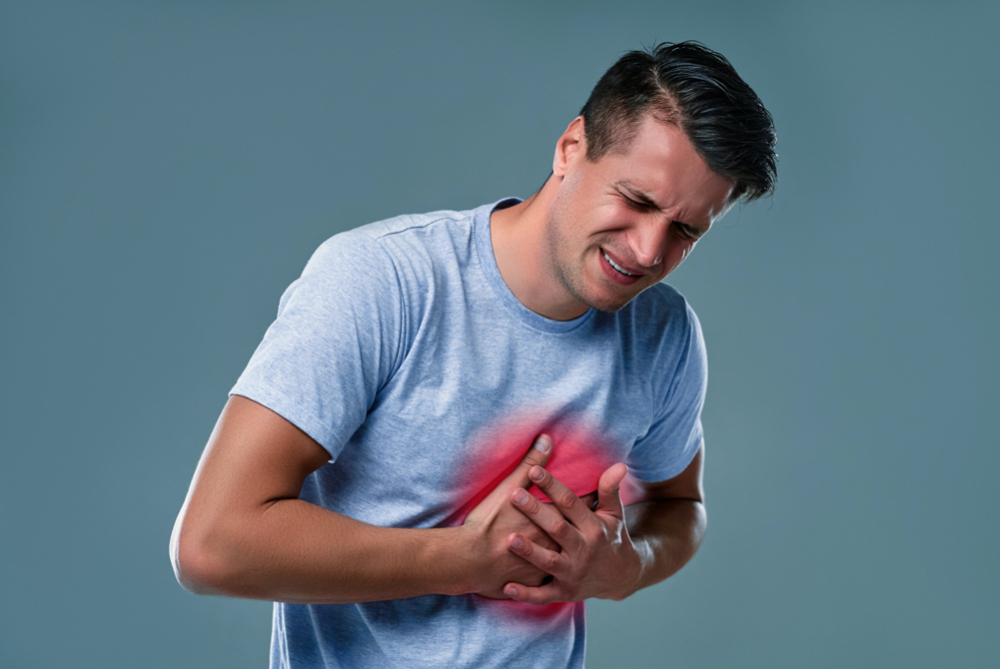- Fast results
- 4,000+ locations
- 4.8 star rating
Need Help? (888) GET LABS


The information in this article is not intended to replace professional medical advice, diagnosis, or treatment. Instead, consult your physician or any licensed healthcare providers if you have questions.
Contrary to popular belief, young adults in their prime can experience sudden cardiac arrest (SCA). The prevalence is lower compared to older adults, and the triggers are typically influenced by genetic factors like hereditary heart problems. But other factors such as drug abuse, chest injuries, and congenital heart defects also add to the potential causes of cardiac arrest in young adults.
Keep reading to discover how SCA defies any age through these health issues and lifestyle influences.
You have a higher risk for cardiac arrest even at a young age if you have hereditary heart conditions that impact the structure and functions of your cardiovascular system. In most cases, these cardiovascular problems cause arrhythmias, high blood pressure, and blood clots, which can be exacerbated when ignored and lead to SCA. These genetic conditions that trigger sudden cardiac arrest in young adults are often specific to the following:
Cardiomyopathy involves disorders characterized by abnormalities in the muscles of the heart–whether it affects their size, structure, or thickness. Different types of cardiomyopathies can influence SCA, such as:
Diagnosing cardiomyopathy is carried out by a professional healthcare provider. Your family history of the disease will be examined, along with your personal medical history and symptoms. In addition, diagnostic tests might be requested and/or performed, like a chest x-ray, echocardiogram, and electrocardiogram.
| ?Did You Know? The B-type natriuretic peptide (BNP) blood test can aid in diagnosing cardiomyopathies. This test checks for BNP, a hormone secreted by the heart’s left ventricle that can increase in levels when the heart is not pumping blood properly or if the kidneys are malfunctioning. Hence, it can be a biomarker for abnormalities in the muscles of the heart. |
Channelopathies happen when ion channels or their interacting proteins malfunction. It can be one of the causes of cardiac arrest in young adults, as primary channelopathies can trigger abnormalities in the electrical activity of the heart. They disturb normal electrical signaling in the heart, resulting in life-threatening arrhythmias.
Individuals with channelopathies develop the condition through mutated genes that encode these ion channels or the proteins connected to their function. While it remains incurable, early diagnosis and risk assessment can prevent SCA and manage arrhythmias.
The use of illegal drugs like cocaine, methamphetamines, and amphetamines can degrade the heart’s normal electrical signaling. Given that these drugs are highly addictive, the risk of sudden heart failure in young adults using these substances increases over time.
Aside from SCA, these drugs also induce other organ malfunctions that influence heart failure. In the case of cocaine overdose, for example, its hypertoxicity significantly damages the brain, which ceases control over cardiovascular functions. Plus, cocaine triggers coronary artery spasms that constrict blood flow significantly.
On top of disrupted electrical signaling, prolonged drug use also increases blood pressure, so much so that it persistently strains and overwork the heart. In addition, certain types of drugs like opioids also increase your susceptibility to cardiomyopathy, which weakens the heart and is considered one of the main causes of sudden cardiac arrest in young adults. This is especially true among those genetically inclined for the condition.
If you haven’t heard of alcohol-induced arrhythmias, it’s high time to understand how serious these can get, even leading to sudden cardiac arrest in young adults. Chronic alcohol drinkers may experience abnormal heart rhythms or cardiac arrhythmias, which lays the groundwork for sudden cardiac arrest, especially when other factors come into play.
Although response to alcohol varies from person to person, heavy drinkers generally have a higher affinity toward SCA. This is particularly true for people who have existing abnormalities in their electrolyte balance, those with heart injury, and pre-existing heart conditions.
To fully understand how alcohol impacts your cardiovascular health, make sure to consult your primary care provider and declare your level of consumption. Doing so will aid your doctor in assessing your risk of sudden cardiac arrest.
| ?Pro tip: Holidays commonly include alcoholic beverages and foods that could influence the development of heart problems, gradual as they may be. For example, holiday heart syndrome can trigger arrhythmias. Find out how to check your heart health after the holidays. |
If you have been in an accident, a brawl, or extreme strain during a sports event where your chest has been severely hit, you might want to have your heart checked and monitored regularly. Blunt chest injuries can be one of the causes of cardiac arrest in young adults.
There are two ways in which you might experience sudden cardiac arrest through chest trauma. The first one is through commotio cordis, in which arrhythmias, specifically ventricular fibrillation, develop even with the absence of any physical damage to the heart. Aside from arrhythmia, it also disrupts the normal electrical system, influencing blood flow.
Commotio cordis is a common occurrence in cases where blunt force impacts the left side of the chest, such as when you’re hit with a ball during a sports event. As the damage may not be visible in imaging tests, it’s imperative to recognize the signs of fibrillation to prevent sudden cardiac arrest.
The second mechanism that escalates blunt chest injury to cardiac arrest among young people is via contusio cordis. Unlike commotio cordis, this exhibits apparent structural damage to the heart and can be much more severe in terms of fatal risks.

Your chances of completely evading sudden cardiac arrest at a young age depend on many factors, including your genetic inclination. Although these inherent factors do not diminish the likelihood of SCA, you can still protect yourself with proper management and lifestyle adjustments. Below, we outline the practical steps for preventing cardiac arrest.
Pro tip: Being young is not an excuse to skip the screening for cardiovascular issues. Read more about why that is from our guide on compelling reasons you should get tested for heart disease in your 20s.
A 25-year-old may suffer cardiac arrest due to hereditary heart conditions, accidents involving severe chest injuries, drug dependency, and alcohol addiction. However, cardiomyopathy is the most common cause of sudden cardiac death in young adults, which is inherited and aggravated by external factors.
It is possible for people who are in good health to suffer cardiac arrest if they have underlying heart conditions that have not been diagnosed in time. Thus, it’s imperative to secure annual checkups on top of maintaining a healthy lifestyle.
Anxiety can cause cardiac disorders and lead to sudden cardiac arrest in physically healthy people. Even though the association between anxiety and SCA is not significant in high-risk populations, it may still play a role by influencing other risk factors, such as cardiovascular disease and diabetes.


We now offer pharmacy discounts through our PersonalabsRx platform.
We now offer pharmacy discounts through our PersonalabsRx platform.